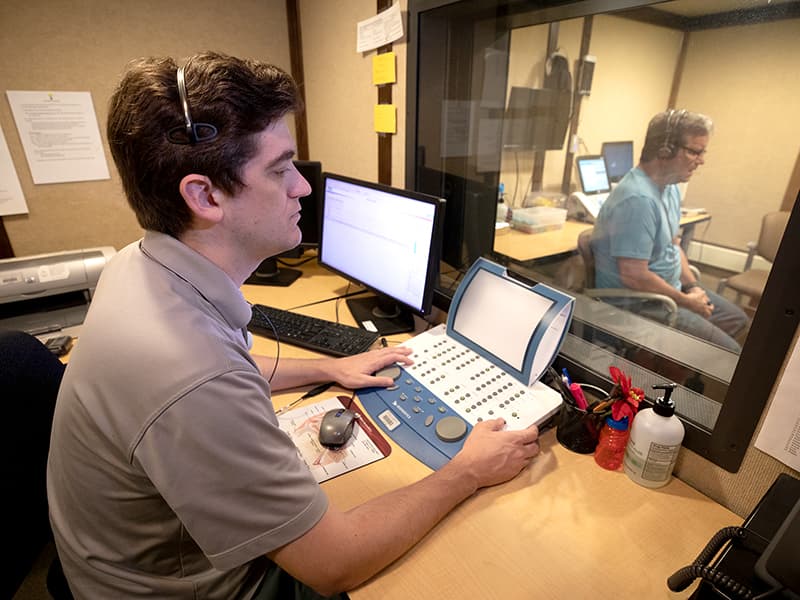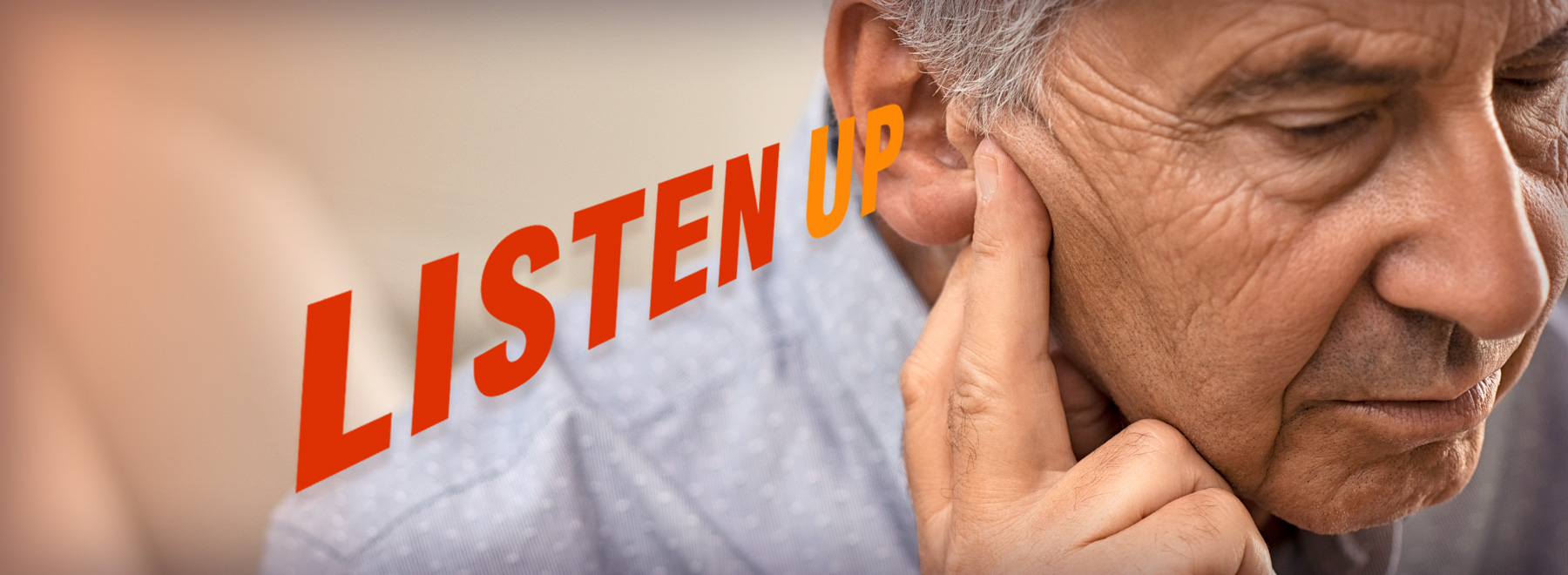Think your hearing is just fine? Consider these study results
You’re in a crowded restaurant with a group of friends, it’s pretty noisy and you’re having trouble hearing well enough to follow the conversation.
You can hear your coworker speaking to you, but you just can’t make out the words very well and that low, persistent buzzing in your ears has been going on for months – maybe years.
Some might say you’re having trouble hearing. But would you?

A new study led by Dr. Christopher Spankovich, associate professor of otolaryngology and communicative sciences at the University of Mississippi Medical Center, has found that about half of the people represented in a national hearing health survey report they can hear just fine – although they actually have at least a mild degree of hearing loss.
The study was published online June 6 in the Journal of the American Medical Association Otolaryngology-Head and Neck Surgery.
“It’s easy to blame external factors: That person was mumbling or it was really loud in there,” Spankovich said. “But the data showed reports of self-perceived good hearing is pretty high, even though all of the people in the study had some level of hearing loss.”

Spankovich, Dr. Steven Curti, a fourth-year otolaryngology and communicative sciences resident, and Elliott Taylor, a School of Medicine student, analyzed data from a group of adults between the ages of 20-69 who took the U.S. National Health and Nutrition Examination Survey. The analysis was conducted between Sept. 4 and Nov. 30, 2018. Joining them was Dan Su, a former UMMC biostatistician.
They came to a number of interesting conclusions from the study group:
• Those who didn’t have other health issues, such as diabetes or obesity, were more likely to report they had good hearing, even if they actually had hearing loss.
• Women are more likely than men to report they have good hearing despite having mild hearing loss.
• Married couples are more likely to report hearing loss and less likely to report good hearing.
“That’s the ‘nag’ factor,” Spankovich joked.
The study also gave insight into the reported use of hearing aids.
“In the United States, there’s a fairly low uptake of hearing aids in people with hearing loss,” Spankovich said. “Only about 30 percent of people in this country who could benefit from hearing aids actually get them.
“The vast majority of those individuals have what’s defined as a mild loss, but they don’t see their degree of loss as big enough for a hearing aid.”
And while some people cite cost as the reason they don’t get a hearing aid, “even if you look at the countries that have health care that is free or low cost, the uptake of hearing aids is similar,” Spankovich said.

Being unaware that you’ve suffered hearing loss “is a big thing, especially with people who developed hearing loss over a period of time,” said Curti, who sees patients in the fouth-floor ear, nose and throat clinic at the University Physicians Lakeland Medical Building in Jackson. “They may not realize they’re losing their hearing.”
Sometimes, family members who accompany patients to an appointment can anecdotally help the patient make the connection that their hearing is not what it should be, Curti said.
“They might say, ‘We have to turn up the TV really loud for him to be able to hear it,’” Curti said.
Spankovich said the data has greater bearing than just perceived loss of hearing.
“Some of the other things related to hearing loss are social isolation and depression, and there are now studies on the relationship between hearing loss and cognitive decline,” he said. “And eating healthy and exercising is good for your body, but also good for your ears.”
He said the conclusions demonstrate that providers need to do a better job of detecting hearing loss early in hopes of averting further damage or so that treatment can begin promptly.
“Just because a person self-reports good hearing doesn’t mean there aren’t any issues,” he said.

When a patient goes to a clinic visit – including to their primary care provider – “we need to extend the question beyond ‘How’s your hearing?’ We need to ask if they have trouble following a conversation in a loud environment or if they have a ringing or buzzing in their ears.
“Those are telltale symptoms of hearing loss.”
Spankovich said a serious medical problem is rarely the cause of hearing loss. Often, hearing loss reflects a person’s life health history, repeated exposure to loud sounds or perhaps genetics.
“But if you have sudden hearing loss, ear pain or drainage or significant ringing, those are medical concerns and you would want to get a referral to an ENT,” he said. “As primary care and family physicians see their aging population is starting to experience small difficulties, it’s a good time to make referrals for those patients to have their hearing checked.
“We want to catch those mild issues before they get too severe.”
The above article appears in CONSULT, UMMC’s monthly e-newsletter sharing news about cutting-edge clinical and health science education advances and innovative biomedical research at the Medical Center and giving you tips and suggestions on how you and the people you love can live a healthier life. Click here and enter your email address to receive CONSULT free of charge. You may cancel at any time.



